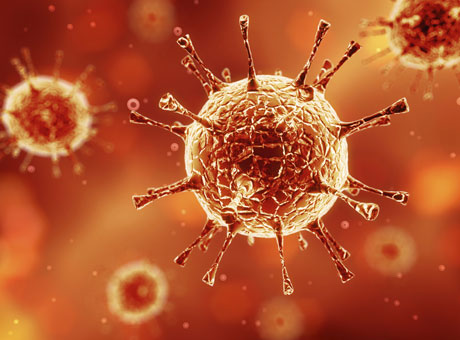
Using a newly recognized cellular defense system to fight infection

Using a newly recognized cellular defense system to fight infection
School of Medicine researchers are leading a multi-institutional campaign to harness a newly recognized cellular defense against infection.
The project could lead to drugs with unprecedented versatility in fighting different infections. A $32 million grant from the National Institutes of Health (NIH) is funding the collaborative, which also includes Massachusetts General Hospital, the Broad Institute and the University of Texas Southwestern Medical Center.
The grant creates a four-site Center for Excellence in Translational Research (CETR), which is a National Institutes of Allergy and Infectious Diseases program.
“If we’re successful, we may develop drugs that allow us to treat bacteria, viruses, fungi and parasites with a single medication,” said principal investigator Herbert W. Virgin IV, MD, PhD, head of the university’s Department of Pathology and Immunology. “We now have drugs that can take on viruses or bacteria but nothing that can fight several types of infectious agents at the same time.”
Virgin and his colleagues are investigating a newly recognized connection between a cellular waste disposal system called autophagy and the body’s ability to fend off infections.
Scientists already knew that autophagy proteins clean out cellular debris. But researchers recently have started to link the proteins to infection control, suggesting that the disposal system may not only take out the trash but also help identify unwanted cellular houseguests — such as bacteria, viruses, fungi or parasites — and destroy them.
Other proteins involved in autophagy may fight infection in different ways, indicating that this pathway is a versatile tool used by the body to fight a range of infections.
The researchers will identify proteins involved in autophagy, explore the roles the proteins play in waste disposal and immunity, and attempt to develop drugs that engage the autophagy process in fighting infections.